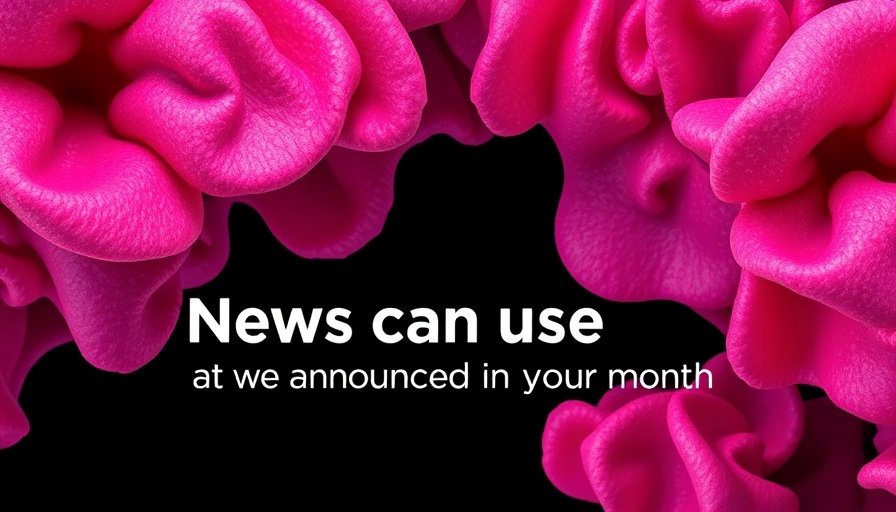
Revolutionizing Performance with AI Innovations
2025 is already presenting immense advancements in the artificial intelligence landscape, particularly through Google Cloud's latest offerings. The month of January featured significant announcements that aim to enhance user efficiency and productivity through AI integration. Most notably, the introduction of the Vertex AI platform is designed to address workplace challenges faced by industries seeking to close the gap between AI's potential and its actual performance in real-world scenarios.
Among the highlights was the launch of the RAG Engine—a fully managed service tailored for those venturing into generative AI. This innovation assists users in building and deploying Retrieval-Augmented Generation (RAG) implementations that utilize their datasets effectively. The focus on reliability and trustworthiness is critical, as many organizations grapple with ensuring AI technology not only works but also meets the expectations set by prior demonstrations.
Enhancing Infrastructure for Future Demands
The necessity for robust infrastructure cannot be understated in the realm of AI. Google Cloud's recent announcements also covered noteworthy enhancements to their AI Hypercomputer systems. The introduction of A3 Ultra VMs enables businesses to run expansive multi-node workloads leveraging GPU resources efficiently. This directly aligns with the evolving needs of businesses undertaking complex AI tasks, including the new Hypercompute Cluster, engineered for scalability.
Another significant update was the enhancement of Trillium, Google’s sixth-generation TPU, which promises to catapult computational efficiency. As companies begin to push the envelope on AI applications, having infrastructure that can dynamically adapt to workload increases is essential.
The Growing Role of Partnerships and Open-Source Contributions
Google Cloud's commitment to fostering relationships within its partner ecosystem highlights its broader industry vision. The recent unveiling of Gemini-powered features in the Partner Marketing Studio aims to accelerate collaborative marketing initiatives among partners. This service is expected to yield higher levels of efficiency while expanding the impact of their marketing reach.
In addition, the launch of several collaborative open-source projects has been pivotal. With advancements such as the Mistral Large 24.11 model and Codestral 25.01, developers now have tools at their disposal to streamline tasks significantly − from code generation to complex content creation. These developments present a valuable opportunity for teams aiming to integrate AI efficiency into their processes.
AI in Retail: A Case Study at the National Retail Federation
The intersection of AI and retail was prominently featured at the National Retail Federation (NRF) conference, which underscored how AI technology can fundamentally transform customer experiences. Google Cloud showcased practical applications, emphasizing how AI agents and AI-powered searches enhance operational performance. For instance, retailers are now utilizing AI to deliver personalized shopping experiences, thus bridging the gap between technology and consumer needs.
This example demonstrates the broader implication of AI innovations. Retailers equipped with tools for generative AI can not only improve internal processes but significantly uplift customer engagement levels by showcasing timely products and offerings.
Embracing the Future of AI Technology
As 2025 unfolds, the innovations presented through Google Cloud highlight a shift toward more practical, user-centric applications of artificial intelligence. The blending of cutting-edge infrastructure, effective partnerships, and open-source collaboration marks a standard for best practices in the tech industry.
For developers, retailers, and businesses alike, these advancements underscore the importance of staying informed and prepared to adapt to new technologies. The transformations within AI are not just incremental; they herald a new era of efficiency and innovation that will undoubtedly reshape industries as we know them.
 Add Row
Add Row  Add
Add 




Write A Comment